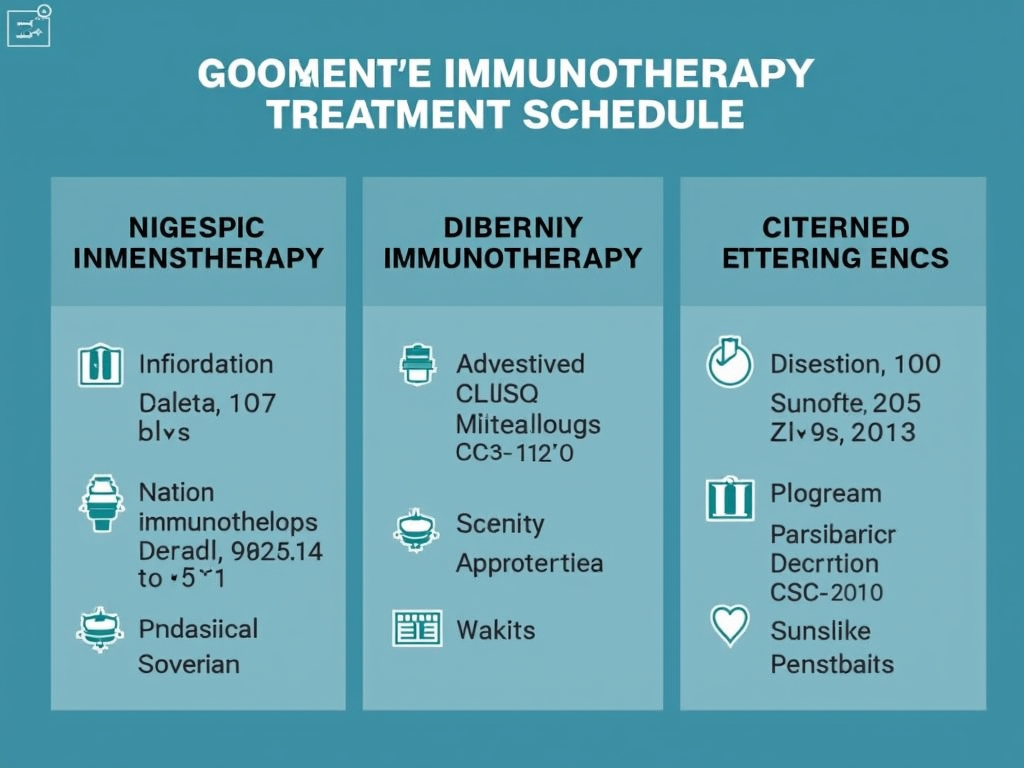Allergen immunotherapy is transforming allergy treatment by building tolerance to allergens. This article delves into its role in managing chronic allergies, including Chronic FPIES, and its impact on modern healthcare.

Allergen immunotherapy, often referred to as allergy shots or sublingual immunotherapy, is a long-term treatment designed to reduce the symptoms of allergies. Unlike medications that only manage symptoms, immunotherapy addresses the root cause by gradually desensitizing the immune system to specific allergens. This process involves administering increasing doses of the allergen over time, allowing the body to build tolerance and reduce its allergic response.
The mechanism behind allergen immunotherapy is fascinating. When a person with allergies is exposed to an allergen, their immune system overreacts, producing antibodies that trigger the release of histamines and other chemicals, leading to symptoms like sneezing, itching, or even anaphylaxis. Immunotherapy works by introducing small, controlled amounts of the allergen, which helps the immune system become less sensitive over time. This is achieved through a series of injections or sublingual drops, typically administered over several months or years.

For environmental allergies, such as those caused by pollen, dust mites, or pet dander, allergen immunotherapy has been a game-changer. Studies show that it can significantly reduce symptoms and the need for medications in many patients. For instance, a person allergic to grass pollen might undergo immunotherapy before the pollen season, which can lessen their symptoms during peak times. The treatment is customized based on the individual's specific allergies, identified through skin prick tests or blood tests.
While allergen immunotherapy is well-established for environmental allergies, its application to food allergies is more recent and still evolving. Food allergies, particularly chronic ones like Chronic FPIES, present unique challenges. Chronic FPIES is a type of food allergy that affects the gastrointestinal system, causing symptoms like vomiting, diarrhea, and in severe cases, shock. Unlike immediate allergic reactions, FPIES reactions are delayed, making diagnosis and management complex. For those living with chronic food allergies, allergen immunotherapy offers a potential path to tolerance.

One of the key benefits of allergen immunotherapy is its potential to provide long-lasting relief. Unlike medications that must be taken continuously, immunotherapy can lead to sustained tolerance even after the treatment is completed. This is particularly beneficial for individuals with chronic allergies who otherwise face a lifetime of symptom management. Additionally, immunotherapy can prevent the progression of allergic diseases, such as the development of asthma in children with allergic rhinitis.
However, allergen immunotherapy is not without risks. The most common side effects are local reactions at the injection site, such as redness or swelling. More serious reactions, like anaphylaxis, are rare but can occur, which is why immunotherapy must be administered under medical supervision. For food allergies, the risk of severe reactions during OIT is higher, necessitating careful monitoring and patient selection.

To illustrate the impact of allergen immunotherapy, consider the story of Sarah, a 10-year-old girl with Chronic FPIES triggered by cow's milk. For years, Sarah had to avoid all dairy products, and accidental exposure led to severe gastrointestinal distress. After undergoing oral immunotherapy under the guidance of her allergist, Sarah can now tolerate small amounts of milk without symptoms. While she still needs to be cautious, this treatment has significantly improved her quality of life.
Looking ahead, the future of allergen immunotherapy is bright. Ongoing research is focused on improving the safety and efficacy of treatments, particularly for food allergies. New approaches, such as sublingual immunotherapy for food allergies and the use of biologics in combination with immunotherapy, are being explored. Additionally, efforts are underway to make immunotherapy more accessible and convenient for patients, potentially through home-based administration for certain allergens.
Not everyone with allergies is a candidate for immunotherapy. Ideal candidates are those who have allergic rhinitis, allergic asthma, or stinging insect allergies, and who have not responded well to other treatments. For food allergies, candidacy is more selective due to the higher risk of adverse reactions. Patients must undergo thorough testing and evaluation by an allergist to determine if immunotherapy is appropriate for them.
Preparing for allergen immunotherapy involves several steps. First, patients need to identify their specific allergens through testing. Then, they must commit to the treatment schedule, which can span several years. During the initial phase, known as the build-up phase, patients receive injections or doses more frequently, gradually increasing the amount of allergen. Once the maintenance dose is reached, the frequency decreases, but regular administration is still required to maintain tolerance.

Another important aspect of allergen immunotherapy is patient education. Patients and their families need to understand the treatment process, potential side effects, and how to manage them. For instance, they should know to wait in the clinic for 30 minutes after each injection to monitor for immediate reactions. Additionally, patients should be aware that immunotherapy is a long-term commitment and that results may take time to manifest.
In terms of cost, allergen immunotherapy can be expensive, but many insurance plans cover it, especially for environmental allergies. For food allergies, coverage may vary, and patients should check with their providers. Despite the cost, many patients find that the long-term benefits, such as reduced medication use and improved quality of life, make it a worthwhile investment.
In conclusion, allergen immunotherapy represents a significant advancement in the treatment of allergies, offering hope for long-term relief and improved quality of life. Its role in modern treatment is expanding, particularly as research continues to unlock its potential for chronic food allergies like Chronic FPIES. While not without risks, the benefits of immunotherapy make it a valuable option for many patients. As healthcare continues to evolve, allergen immunotherapy will likely play an increasingly central role in allergy management.
Discuss Here